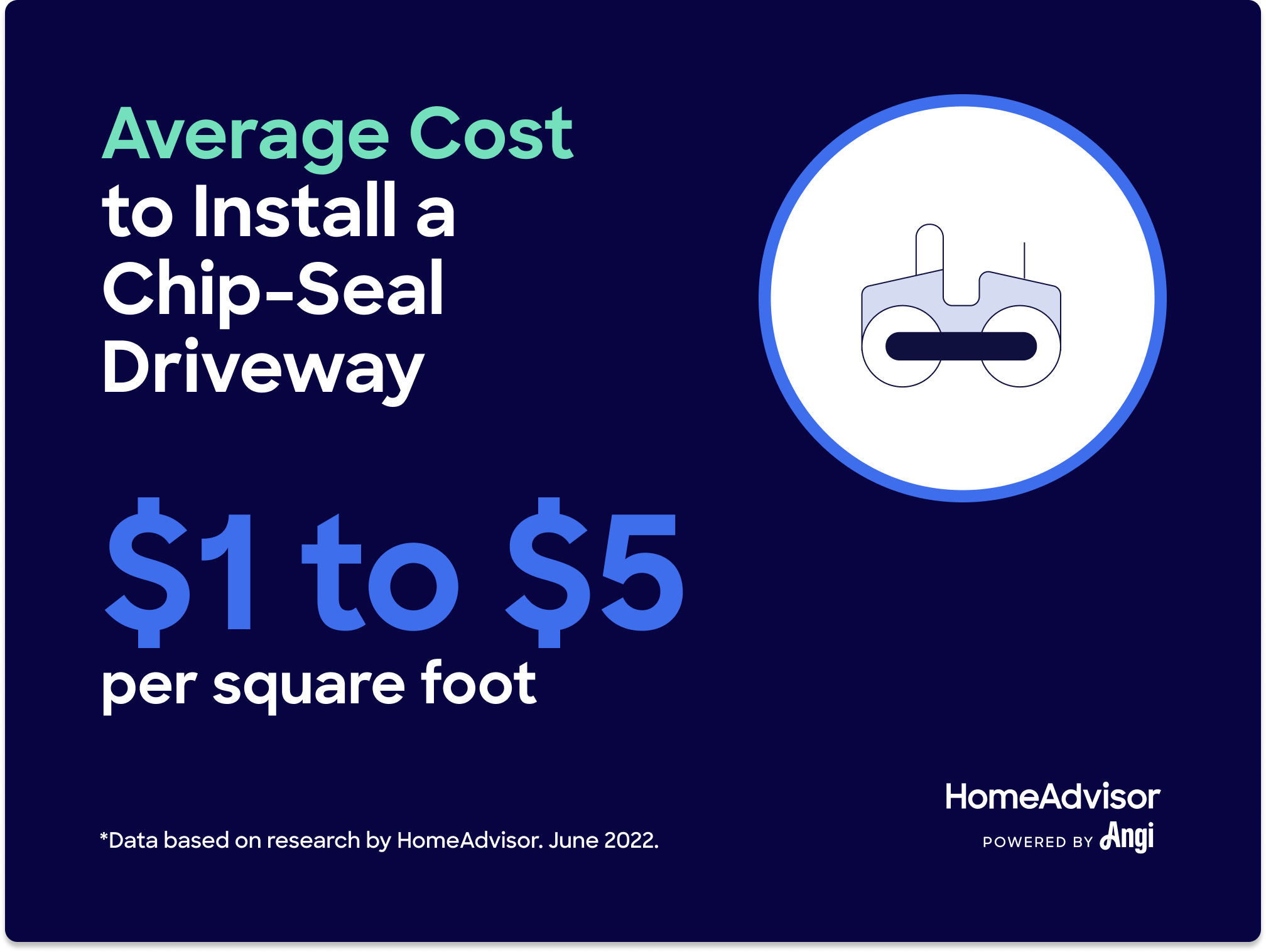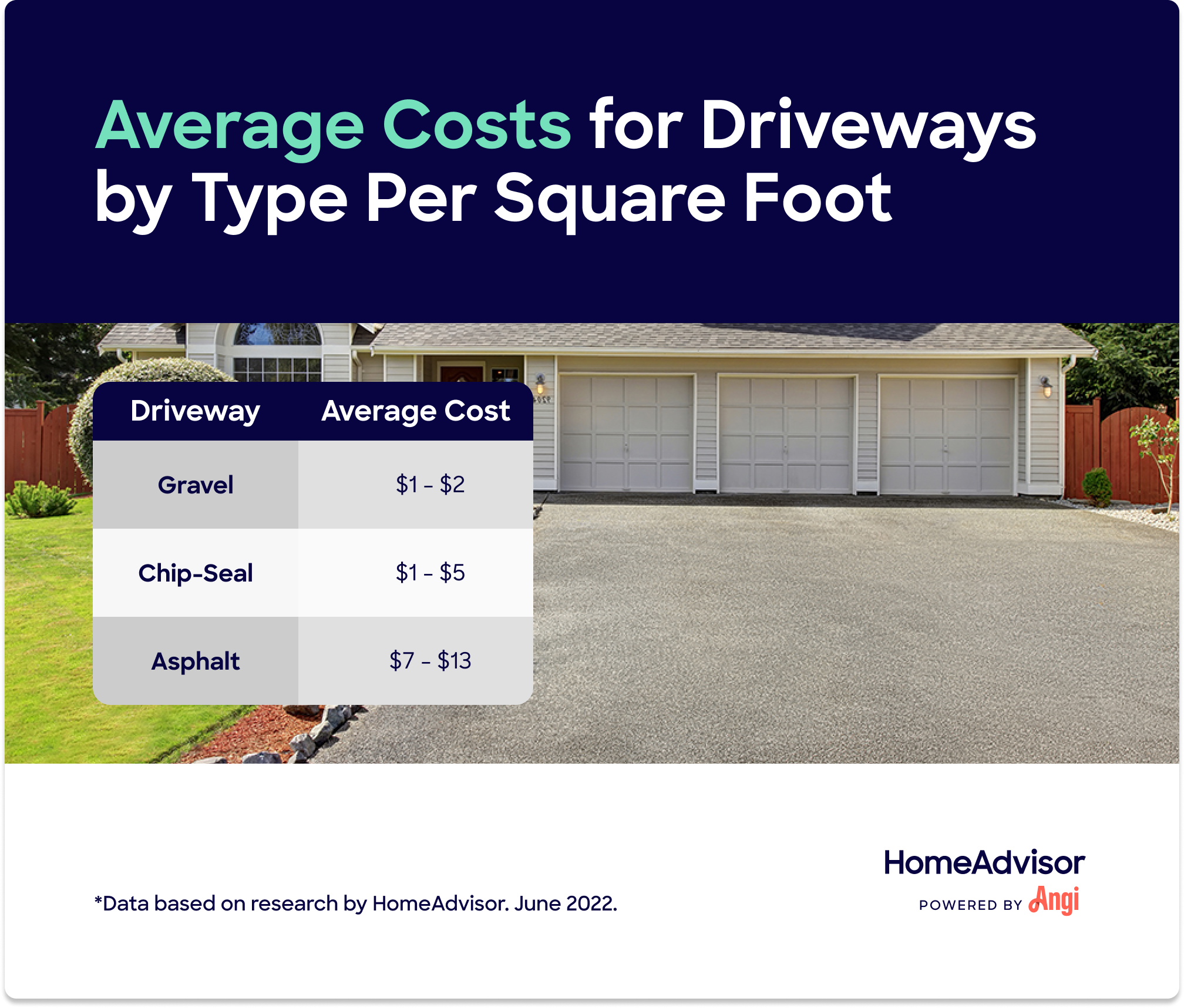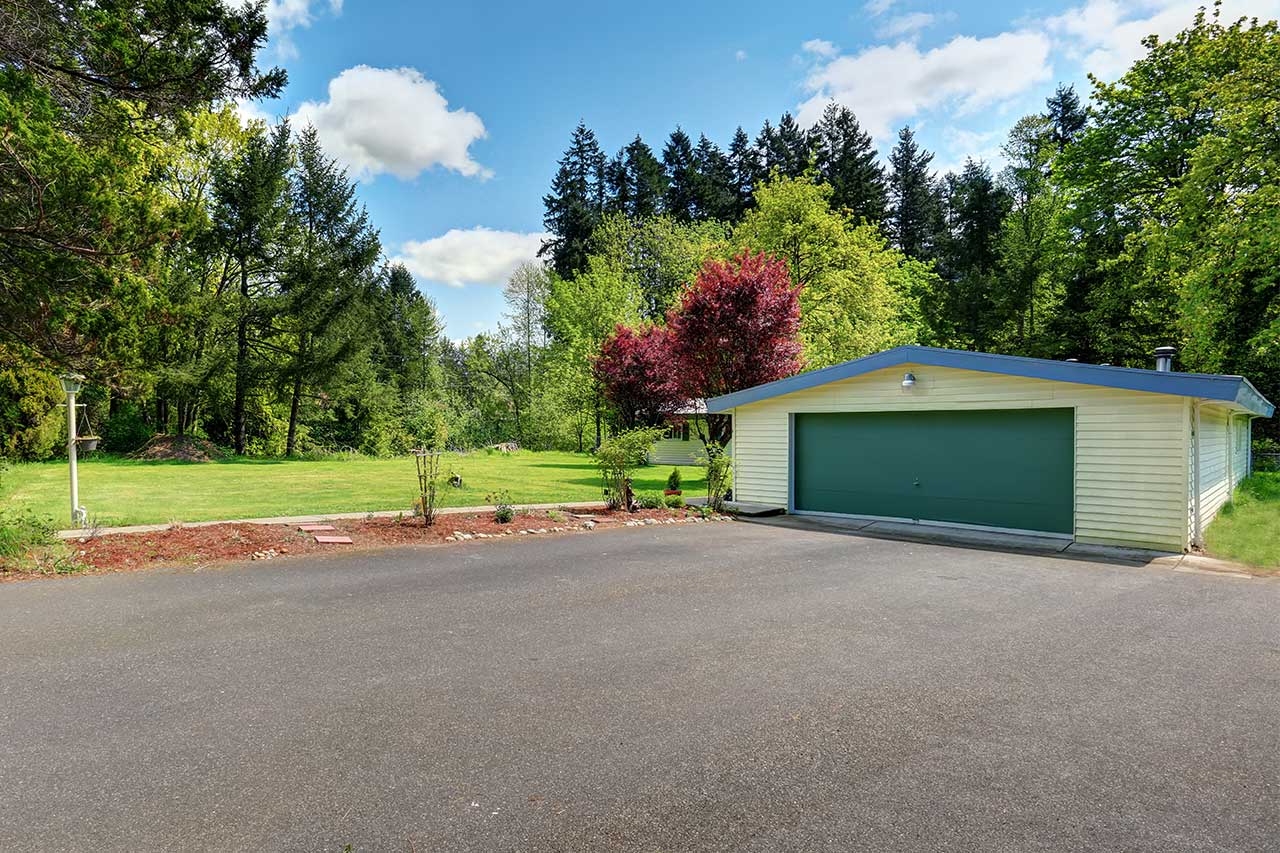How Much Does a Chip-Seal or Tar-and-Chip Driveway Cost?
Typical Range:
$650 - $3,200
Typical Range:
$650 - $3,200
Cost data is based on research by HomeAdvisor.
Updated April 15, 2024
Written by HomeAdvisor.Hiring a pro for tar-and-chip driveways ensures safe equipment usage, proper stone spreading, and timely asphalt hardening.
The average cost of a chip-seal driveway is around $3 per square foot.
Project size, state of the site, local labor and material prices, and fluctuating oil prices impact the project cost.
Popular materials for tar-and-chip driveways include hot asphalt and loose stones.
Choosing between single-chip seal and double-chip seal depends on the current state of the road or driveway.
Chip-seal driveways preserve pavement, improve skid resistance, protect against moisture, and improve road structure.
Highlights were summarized from this existing cost guide text using automation technology and were thoroughly reviewed for accuracy by HomeAdvisor Editor Ryan Noonan.
The average cost of a 16-by-40-foot tar-and-chip driveway is $1,950, with base costs ranging between $1 and $5 per square foot. Driveways on the low end can cost as little as $650, while more expensive ones cost about $3,200.
A tar-and-chip driveway—also known as macadam, chip seal, or oil and stone—consists of hot-liquid asphalt covered with crushed stone that’s compacted before the asphalt hardens. Asphalt generally costs less than concrete but more than gravel.
The average cost of a chip-seal driveway is around $3 per square foot, though prices can range anywhere from $1 to $5 per square foot.
The size of the project, state of the site, and local labor and material prices will all affect the cost. As oil prices rise or fall, expect the cost of this project to do the same.
Below are the average cost ranges for chip-seal driveways in single- and double-car sizes.
| Driveway Size | Average Cost |
|---|---|
| 12-by-20 feet (240 square feet) | $250 – $1,200 |
| 16-by-20 feet (320 square feet) | $350 – $1,600 |
| 12-by-40 feet (480 square feet) | $500 – $2,400 |
| 16-by-40 feet (640 square feet) | $650 – $3,200 |
| 20-by-40 feet (800 square feet) | $800 – $4,000 |
| 24-by-40 feet (960 square feet) | $1,000 – $4,800 |
For a mile of macadam road with a width of 24 feet (about two lanes), the average cost can range between $1 to $5 per square foot or $9 to $45 per square yard. The total cost for one mile of a two-lane road in a rural area can range anywhere from $130,000 to $635,000.
The price for a one-spot macadam parking lot of about 18-by-9-feet is roughly $500. A 1,000-square-foot parking lot with four spaces and room to pull in and back out costs about $3,000. A 1,512-square-foot parking lot with six spaces is about $4,600.
| Parking Lot Size | Average Cost |
|---|---|
| One-Spot Lot (18’x9’; 162 square feet) | $500 |
| Four-Space Lot (1,000 square feet) | $3,000 |
| Six-Space Lot (1,512 square feet) | $4,600 |
Chip seal preserves existing pavement. Choosing between single-chip seal versus double-chip seal comes down to the current state of the road or driveway. Below are the average costs for both types.
A single-chip seal costs roughly $1.50 per square yard. With this type of seal, liquid asphalt gets applied directly to the pavement, followed by a layer of 1/4- or 1/2-inch aggregate.
Single-chip seals work well for protecting roads that are in good shape. They also offer quick, straightforward application for minimal disruption of traffic. Here are other key benefits of a single-chip seal:
Maintains the road’s quality
Protects against moisture
Improves skid resistance and traction
A double-chip seal goes for around $3 per square yard and involves the application of two layers of single-chip seal, one right after the other. This type of seal helps improve the structure of roads with moderate to severe damage or deterioration. Here are the main benefits to consider:
Improves surface texture for better skid resistance and traction
Protects twice as much from moisture and oxidation
Reduces damage from snowplows
High-performance seals typically cost around $1.85 per square yard. These offer a higher asphalt application rate and a higher-quality aggregate embedded in the asphalt during placement (unlike single chip). Good for heavy, daily-traffic use—here are the main benefits of this type of seal:
Highest skid resistance and traction
High-quality appearance
Best at protecting against oxidation and moisture
Longest life cycle due to higher asphalt application rate
Can install traffic markings after two days
There are many different aspects to consider when building a tar-and-chip driveway. Here are the main factors regarding cost and timing.
Stone chips don't take to cool or hard asphalt, so the best time to install an oil and stone driveway is when the weather is hot and arid. The asphalt should get poured onto a warm, dry surface.
Tar-and-chip paving works best on rural, low-traffic, and slow-speed surfaces where loose or excess chips won't be as likely to damage vehicles.
Driveways should slope away from the home to safely redirect water and allow proper drainage. Steeper slopes will drive up project costs.
Permits typically cost between $500 and $2,300. A municipality may require them if the tar-and-chip driveway connects to a residential street. The average cost is about $1,100 but can vary significantly depending on the city or state.
Hiring a land surveyor costs most homeowners between $400 and $700. A pro can help pinpoint property boundaries if you're unsure of where they start and stop. This can also be useful in case of future land disputes.
Grading and leveling the land before installing a driveway costs around $1.50 per square foot. Clearing the surrounding land costs around $1.30 to $2 per square foot. Before installing a driveway, the site has to be clear and level. Extra expenses will vary based on the current state of the land.
Different colors and types of stone can impact the installation cost. If the desired variety of stone isn’t locally sourced or available, importing it will drive up material prices.
Chip-and-seal driveways can get installed over an existing driveway but may require repairs first. The price of asphalt driveway repairs is $2,350 on average.
At $1 to $5 per square foot, chip-seal driveways are much more budget-friendly than the cost of an asphalt driveway, which is usually around $7 to $13 per square foot. Gravel driveways typically cost the least at about $1 to $2 per square foot.
Even DIY-savvy homeowners should leave a tar-and-chip driveway to the pros, who can safely work with the equipment and hot asphalt. A local asphalt paving contractor has the skill and equipment to pour the hot-liquid asphalt, spread the stones, and compact them before the asphalt hardens.
A tar-and-chip driveway looks similar to asphalt but costs less and has a different installation process. Instead of straight asphalt, tar-and-chip features layers of hot asphalt overlaid with loose stones. The stones compress into the asphalt, drying into a smooth surface.
In general, a tar-and-chip driveway should last around 10 to 15 years. The overall life span depends on the level of traffic it sees.
Tar-and-chip driveways can come in an array of colors, including black, gray, beige, red, pink, green, or even gold. Selections vary by manufacturer, so ask about color options when you book.


